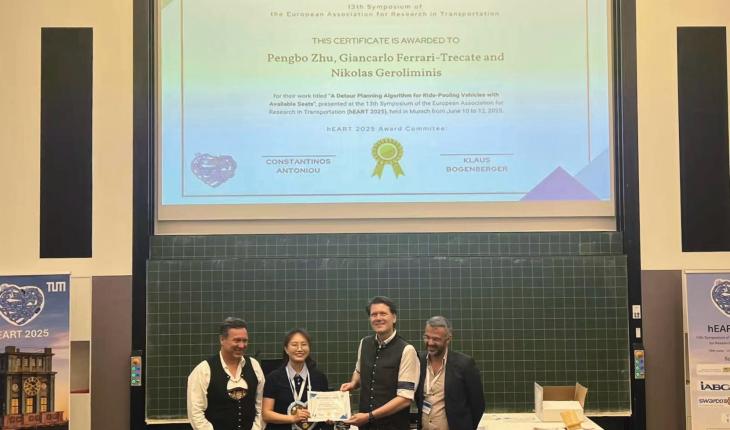Pengbo Zhu

Pengbo Zhu
Alumni
As the creator of intelligent machine, it’s our turn to endow them with the concepts of control and optimization, which we human beings have innately.
Pengbo Zhu is a PhD student in the Laboratory of Urban Transport systems(LUTS) in EPFL Lausanne. She obtained her bachelor degree in Automation in 2017, and her master degree in Control Science and Engineering in 2019 both from Harbin Institute of Technology, China. Her research interests are model and automatic control, optimization with applications in transport system.
Pengbo has taken part in the #NCCRWomen campaign. You can see her great video here.
After finishing her PhD, Pengbo started a Postdoc at Cornell University.




